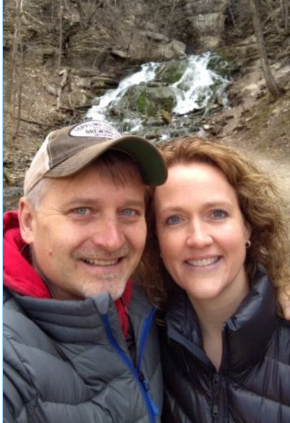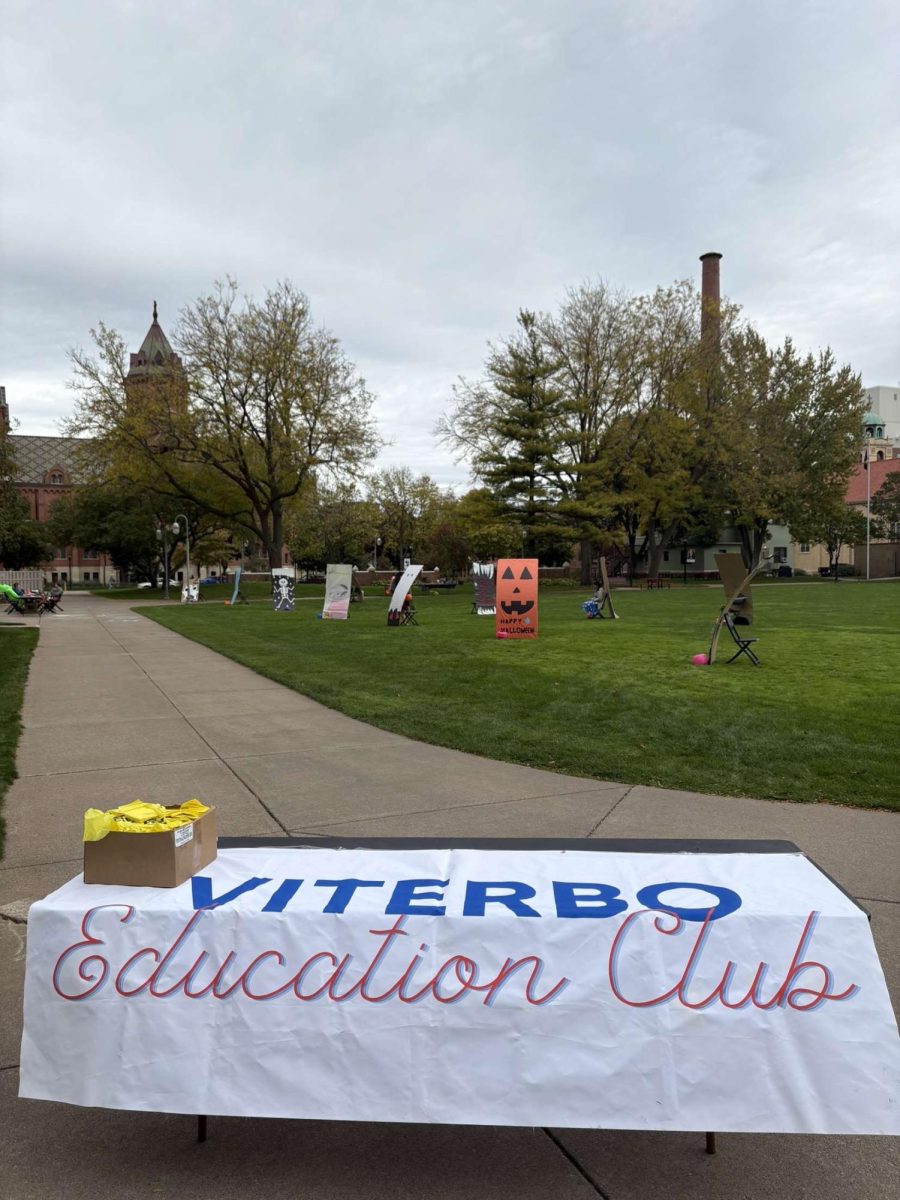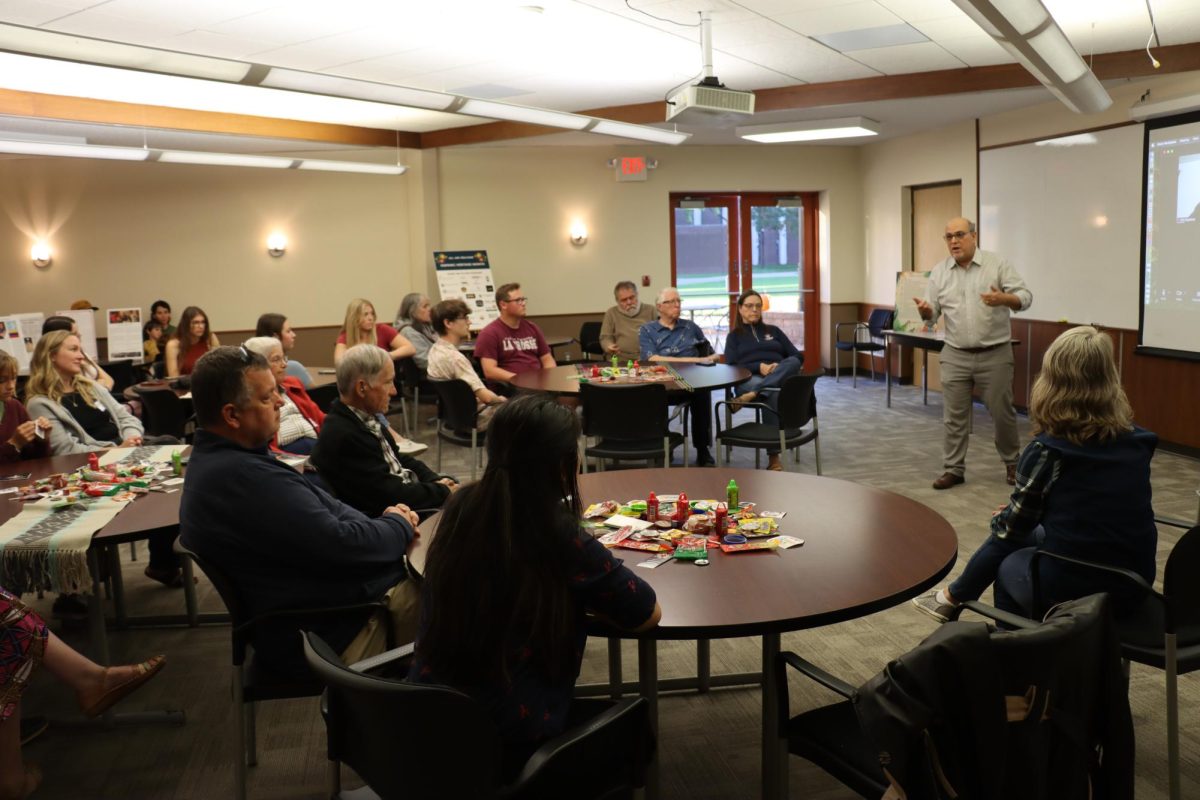
In Tina Johns’s office, with earth-tone walls, children’s watercolor paintings and star-shaped, navy Viterbo stress balls, several black framed awards line the walls. One that feels momentous to her is Viterbo’s 2011 Servant-Leader award.
For almost 30 years, Tina Johns has served Viterbo and its students. From Viterbo she earned a bachelor’s degree and a Master of Business Administration. For Viterbo, with the official titles as the Director of Student Retention and the Title IX Coordinator, she describes herself as a “Jackie-of-all-trades.”
Her exhaustive list of tasks as the Student Retention Director includes working with Viterbo’s student emergency fund and helping individual students find their own path to college affordability. Johns additionally acts as transition coordinator for transfer students and supports sophomore student programing. Through the Viterbo CARES phone line and social media, she communicates with parents and families of students. She also works on supporting students through “sticky situations.” Like last March, when the corona virus shut the campus down and some students were forced to use WIFI in McDonald’s parking lots, typing papers on their phones because they could not access or afford internet, Viterbo negotiated a deal with a company serving the La Crosse and Sparta area to set up free WIFI hotspots for students.
Her newer duties relate to COVID and her Title IX duties. Since March, she has served on the Viterbo COVID-19 response team and answers the COVID emergency hotline. As a Title IX Coordinator, she enthusiastically embraces her role to educate students and staff about healthy relationships and how Viterbo can help. Johns explains this job is one component of how Viterbo fulfills its “goal to keep campus as safe as possible for everyone.” She also updated campus to new federal standards, which introduced a live (Zoom) hearing, and pairs every student participant with a staff member to act as a “process advisor” through the steps and advocate for them.
Many an evaluative assessment has found Johns’ best strength: her empathy. As a colleague put it, Johns “has an uncanny ability to walk in somebody else’s shoes.” Johns’ definition of leadership fits with her growing up in a farm family. To her, a leader is to be “in the muck, in the weeds, doing the work alongside” those she leads. Her philosophy views leadership as “establishing relationships.” Nothing, Johns stressed, no job is “too little, too below” her standing, below a leader’s duties.
Furthermore, Johns explains leadership comes from “experience.” Some people, she describes, “learn best by reading, writing, learning, or doing,” but she prefers a conglomeration of all four. Personally, for her it is difficult to comprehend what individuals require for assistance without climbing into the metaphorical trenches with them. In addition to leaders’ need to “get their feet wet,” servant leaders need other qualities, too.
Leaders must also be humble, willing to both admit mistakes and celebrate accomplishments. They need to have a “listening ear,” Johns stressed, to discern each person’s challenges and recognize the best way to congratulate that individual.
“For example,” Johns explained, “You know that servant leadership award?” She flings her left arm across a fogged-up, sun-lit window to the awards to the side of her head. While she feels “thankful –blessed –privileged” to receive the award, she admitted she is just “not an awards-type person.” Instead, she prefers giving and receiving personal notes or phone calls. Other people, she explains, may enjoy the spotlight, or an assembly announcement, or being copied in an email to the vice president or other higher ups. To her, it is just about knowing each individual and strengthening each relationship.
Johns believes this type of empathetic leadership is especially poignant given the climate of Black Lives Matter and our society’s current dialogue about and difficulties in being anti-racist. “It is hard for me as a middle-aged white woman to put myself into the shoes of a middle-aged Black woman,” she acknowledges, but empathy, Johns argues, “pushes [people] to learn more” and lets people see the world through a view tilted by someone else’s experiences.
To Tina Johns, servant leadership works the way Viterbo University does: seeing people, both staff and students, as people, not numbers. Being willing to jump in alongside people stuck in the mud to fully appreciate their situation and problem solve to pull each person up and out. No fussiness for staining your metaphorical t-shirt or getting dirt under fingernails, just honest work and a big heart.

